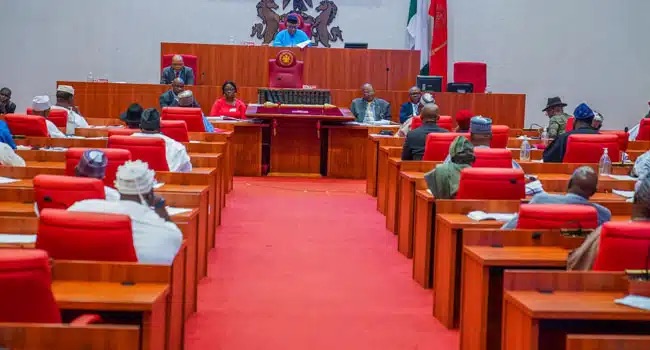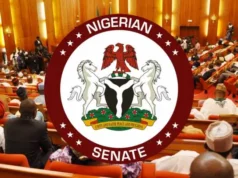This followed the adoption of the report of the Senate Joint Committee on Judiciary, Human Rights, Legal Matters, Federal Character and Inter-Governmental Affairs at plenary.
Presenting the report, the Chairman of the Committee, Sen. Mohammed Monguno(APC-Borno) said the bill was first read at plenary on May 23.
He said the bill, among others, sought to provide a legal framework for an Act to reinvent the old National Anthem titled “Nigeria We Hail Thee” which was adopted at Independence in 1960.
He said the anthem was the official anthem of Nigeria until 1978, when it was replaced with the current “Arise O Compatriot.”
Monguno said the aim was to adopt the old national anthem through legislation because of its contextual connotations and relevance to the current state of the country.
“The bill is designed to promote national unity and cohesion through ideological and philosophical concepts of the rich historic and cultural heritage of Nigeria.
“It will engender and inculcate a deep sense of patriotism, togetherness and oneness amongst citizens.
“It is the first time the parliament is making a legal framework for a national anthem: all the steps of law making including public hearing have been undertaken,” he said.
Monguno said the passage of the bill would provide the needed platform for sensitisation of the citizenry on the nation’s core value system by the National Orientation Agency (NOA).
“Adopting the old national anthem will preserve and promote the country’s cultural heritage for future generations.
“The bill is significant, as changing the national anthem will symbolise Nigeria’s transition towards greater unity, inclusiveness and progress as a nation.
“The adoption of the anthem certainly demonstrates Nigeria’s respect for its cultural traditions while also embracing positive changes within the society.”
The senator added that by the passage of the bill, an arbitrary change on national anthem would be avoided as it would be subjected to legislative process, thus setting a precedent.
The Senate President, Godswill Akpabio, thanked the committee for its input on the bill.










